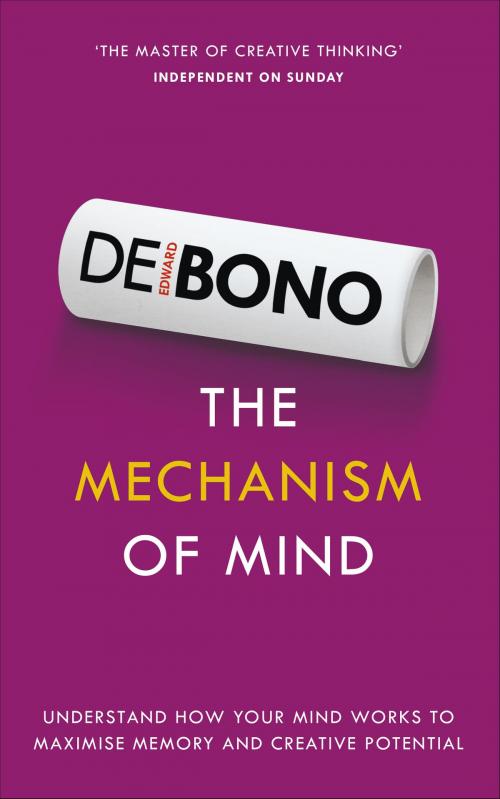The Mechanism of Mind
Understand how your mind works to maximise memory and creative potential
Nonfiction, Health & Well Being, Self Help, Self Improvement, Memory Improvement| Author: | Edward de Bono | ISBN: | 9781473527577 |
| Publisher: | Ebury Publishing | Publication: | July 2, 2015 |
| Imprint: | Ebury Digital | Language: | English |
| Author: | Edward de Bono |
| ISBN: | 9781473527577 |
| Publisher: | Ebury Publishing |
| Publication: | July 2, 2015 |
| Imprint: | Ebury Digital |
| Language: | English |
The Mechanism of Mind presents Edward de Bono’s original theories on how the brain functions, processes information and organises it. It explains why the brain, the ’mechanism’, can only work in certain ways and introduces the four basic types of thinking that have gone on to inform his life’s work, namely ‘natural thinking’, ‘logical thinking’,’ mathematical thinking’ and ‘lateral thinking’. De Bono also outlines his argument for introducing the word ‘PO’ as an alternative to the word ‘NO’ when putting lateral thinking into practice.
Drawing on colourful visual imagery to help explain his theories and thought-processes, from light bulbs and sugar cubes to photography and water erosion, The Mechanism of Mind remains as fascinating and as insightful as it was when it was first published in 1969. This is a must-read for anyone who wants to gain a greater understanding of how the mind works and organises information – and how Edward de Bono came to develop his creative thinking tools.
The Mechanism of Mind presents Edward de Bono’s original theories on how the brain functions, processes information and organises it. It explains why the brain, the ’mechanism’, can only work in certain ways and introduces the four basic types of thinking that have gone on to inform his life’s work, namely ‘natural thinking’, ‘logical thinking’,’ mathematical thinking’ and ‘lateral thinking’. De Bono also outlines his argument for introducing the word ‘PO’ as an alternative to the word ‘NO’ when putting lateral thinking into practice.
Drawing on colourful visual imagery to help explain his theories and thought-processes, from light bulbs and sugar cubes to photography and water erosion, The Mechanism of Mind remains as fascinating and as insightful as it was when it was first published in 1969. This is a must-read for anyone who wants to gain a greater understanding of how the mind works and organises information – and how Edward de Bono came to develop his creative thinking tools.















